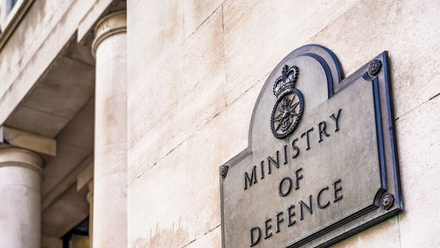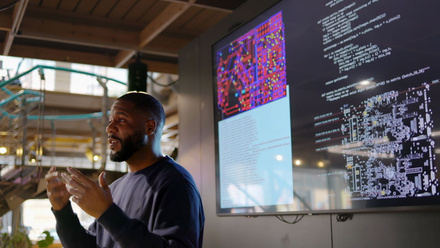This University of Surrey led workshop, supported by DCMS and UK SPF, will focus on energy efficiency, spectrum efficiency and coverage.
Workshop lead:
Professor Rahim Tafazolli FREng, Head of the Institute for Communication Systems (ICS), Regius, FREng, FIET, WWRF Fellow, University of Surrey
|
Timing |
Title, Speaker, Institution |
|
09:00-09:40 |
Welcome Speech, 6GIC Vision and Overview of the workshop: Prof Rahim Tafazolli |
|
Keynote Dr Mike Short CBE, Chief Scientific Adviser, Department for International Trade and Visiting professor, The University of Surrey UK capabilities: Looking back to look forward Joe McGeehan, Emeritus Professor, The University of Bristol Introduction of 6G requirements (6GIC Vision) and Workshop objectives Rahim Tafazolli, 5G/6GIC, The University of Surrey |
|
|
Morning Technical Sessions Chair: Ian Corden, Visiting Professor, 5G/6GIC, The University of Surrey |
|
|
09:40-10:40 20min each inc Q&A |
Session 1-Radio Waves modelling |
|
Spectrum allocation from a propagation perspective Sana Salous, Director of the Centre for Communication Systems, Professor of Communications Engineering, Department of Engineering, Durham University A Non-Stationary Channel Model and Capacity Behaviour of ELAA-mMIMO Systems Yi Ma, 5G/6GIC, The University of Surrey 6G Technologies; Radio Waves and Health Dr. Azadeh Peyman, Public Health England |
|
|
10:40-10:55 |
Coffee Break |
|
10:55-11:55 20min each inc Q&A |
Session 2: New Physical layer Techniques |
|
Non-orthogonal signals for spectral and energy efficient transmission; are these the ideal candidates for 6G? Izzat Darwazeh, The University College London Rate Splitting Multiple Access for 6G Communications and Sensing Bruno Clerckx, Imperial College Exploiting Electromagnetic Degrees of Freedom for Spectrum Efficiency Enhancements Pei Xiao, 5G/6GIC, The University of Surrey |
|
|
11:55-12:55 20min each inc Q&A |
Session 3: New Frequency Bands and towards Tbps |
|
The optical spectrum and Tb/s wireless systems in the 6G era Jaafar M.H. Elmirghani, The University of Leeds Power-efficient waveforms for visible light communication Fabien Heliot, 5G/6GIC, The University of Surrey RF Sampling and Software Defined Radio – Working with a 4 GHz Baseband using the Multichannel RFSoC Louise Crockett, David Northcote, The University of Strathclyde |
|
|
12:55-13:25 |
Lunch Break |
|
Afternoon Technical Sessions Chair: David Hendon, Visiting Professor, 5G/6GIC, The University of Surrey |
|
|
13:25-14:25 20min each inc Q&A |
Session 4: RAN |
|
Self-Organised Radio and Core Networks: Achieving end-to-end optimal resource utilisation Muhammad Imran, University of Glasgow On the energy efficiency, spectral efficiency and coverage of cell-free massive MIMO Hien Quoc Ngo, The Queen University of Belfast Cell Sweeping - A New Paradigm for Cells Deployment and Cell-edge Enhancement Atta Quddus, 5G/6GIC, The University of Surrey |
|
|
14:25-15:25 20min each inc Q&A |
Session 5: Co-existence |
|
Spectrum co-existence for satellite and terrestrial systems Barry Evans, 5G/6GIC, The University of Surrey Blind Spectrum Sensing Using Stochastic Resonance Seiamak Vahid, 5G/6GIC, The University of Surrey OpenRAN Lab at Surrey Konstantinos Nikitopoulos and Rahulan Yogaratnam, 5G/6GIC, The University of Surrey |
|
|
15:25-15:40 |
Coffee Break |
|
15:40-16:40 20min each inc Q&A |
Session 6: Enabling Techniques |
|
A glimpse of next-generation wireless enabling techniques Lajos Hanzo , Southampton University Green and Secure Networks; Will 6G deliver the Duo? Mohammad Shikh-Bahaei, King's College London Coverage enhancement with power efficient Reconfigurable Intelligent Surfaces Mohsen Khalily, 5G/6GIC, The University of Surrey |
|
|
16:40-17:00 |
Discussions: All Overview of Next Workshop: Robert Stewart, The University of Strathclyde |
We thank all those who have helped us promote this series of events, including CW.
The UK Spectrum Policy Forum (SPF) and DCMS are supporting a series of University-run workshops to showcase the current research projects having the best potential to address 6G wireless research priorities. Bristol, Surrey and Strathclyde have been selected to run the workshops but the intention is for these workshops to be a platform for all UK universities having relevant wireless research. Each hosting University has been entrusted by the SPF and DCMS to identify outstanding research projects from other Universities to showcase at their workshops. The output from this series of workshops will be a White Paper for the UK SPF to present to government that validates the research projects as relevant to UK 6G research priorities, identifies gaps, suggests opportunities for collaboration, looks at the adequacy of research funding streams and flag potential implications for 6G spectrum policy.
You can access the slides and presentation recordings from the first event in this series, led by Bristol University, here:
This event will be recorded. By registering you consent with your name, job title and organisation being included on the delegate list. The agenda is subject to change without notice.





